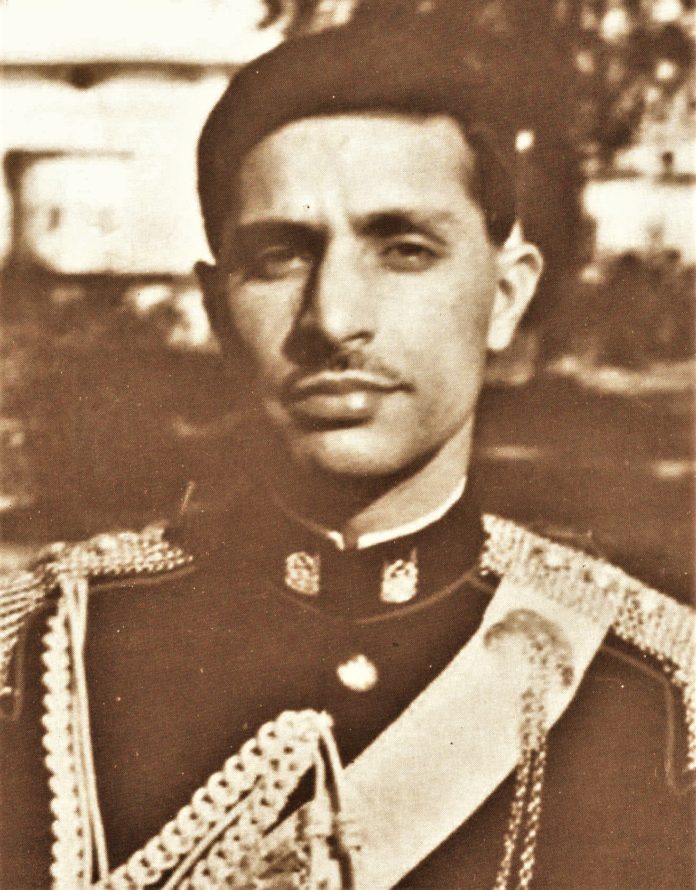Brigadier Jafar Khan passed away in May 2017. Jafar belonged to a family with long association with the army. His grandfather was Khan Bahadur Risaldar Major Malik Muhammad Gulsher Khan Gheba. Born in 1860, young Gulsher was an expert horseman. In 1880, he rode into Mardan with his horse and servant to join legendary Guides (then a mixed regiment of cavalry & infantry). As far as regimental pride and reputation was concerned Guides was ‘it’. Eager young Pathan, Punjabi Muslim, Sikhs, Afghan, Gurkha and even men from Persia and Turkistan showed up at Guides headquarters in Mardan. Discipline was not maintained by regulations but a simple threat of being discharged from Guides was shameful enough for any man to show slackness. Guides were never short of funds and raised money from willing recruits. Some were willing to pay the princely sum of 300 rupees to join the regiment. At any given time, as many as thirty would be recruits attached themselves with Guides without pay and bringing their own horse and servant. They accompanied the regiment in the battle with the hope that if a man became casualty they would be enlisted on the spot.
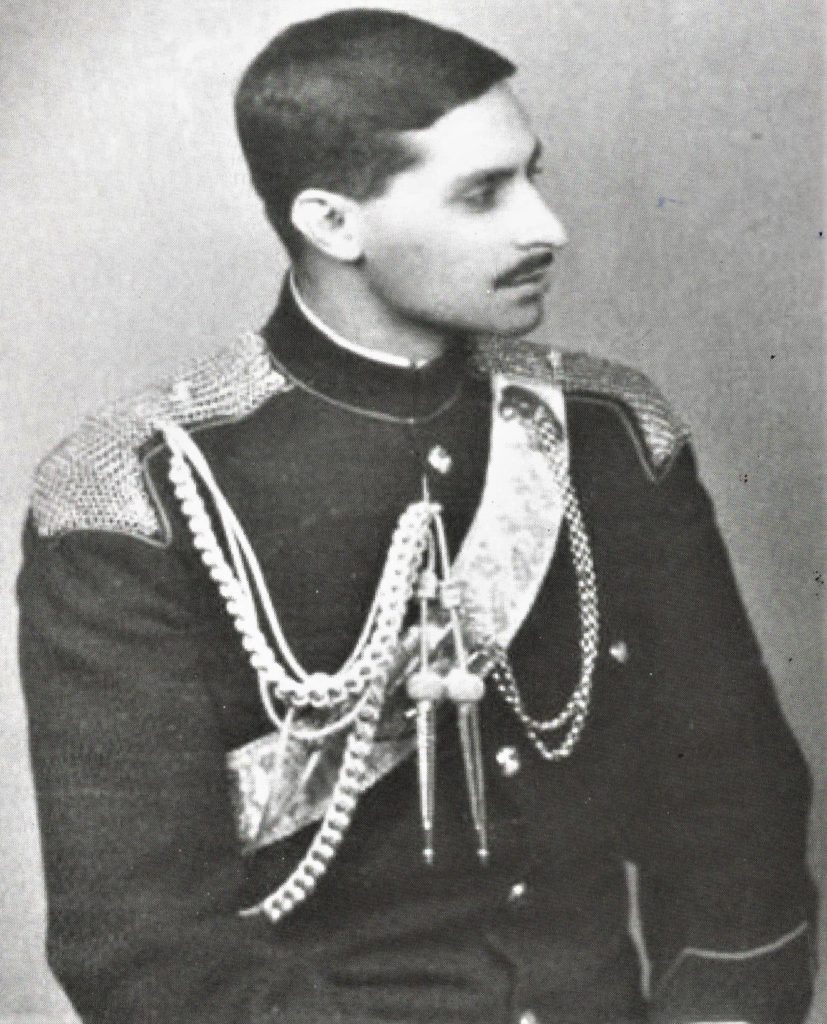
This was the Guides that Gulsher joined. After eleven years of service with the regiment, he retired in 1891 at the rank of Daffadar. This short service was norm for some young men of landed aristocracy as they went back to administer their agricultural lands. His close friend and regimental buddy was Malik Muzzafar Khan Tiwana of Shahpur. Muzzafar retired as Jamadar of Guides. Gulsher accompanied his friend to Shahpur to manage the land. Muzzafar recommended Gulsher to British authorities when a remount depot was established at Sargodha. Gulsher was recalled and appointed Viceroy Commissioned Officer (VCO) Risaldar of the depot. He remained at the depot as Chief Native Officer until his death.
Gulsher was an expert horseman and given the title of “Shahsawar-e-Hind” (Horseman of India). He attended coronation Durbar in Delhi on 09 December 1911. A young English woman Ethel Grace Smith; wife of Sergeant Major Fred Killburn of 2nd Regiment Royal Artillery was in the audience at Delhi Durbar. She remembered the ‘tattoo’ in the evening and it was a scene from a fairy tale. A handsome Indian on his horse appeared against the night sky. Gulsher riding his favorite mare ‘Gul-e-Mahboob’ climbed about hundred stairs lit by lamps on both sides of the main platform and then climbed down with the same grace. The man and the horse performed like a symphony to a dazzled audience and this was Gulsher at his best. Little did she know that her family will be linked with the family of this Indian? Ethel’s grand-daughter Rosemary Young married grandson of Gulsher; Muhammad Sarfaraz Khan in 1955. Gulsher died suddenly from possibly a brain hemorrhage in 1913 at the age of fifty three.
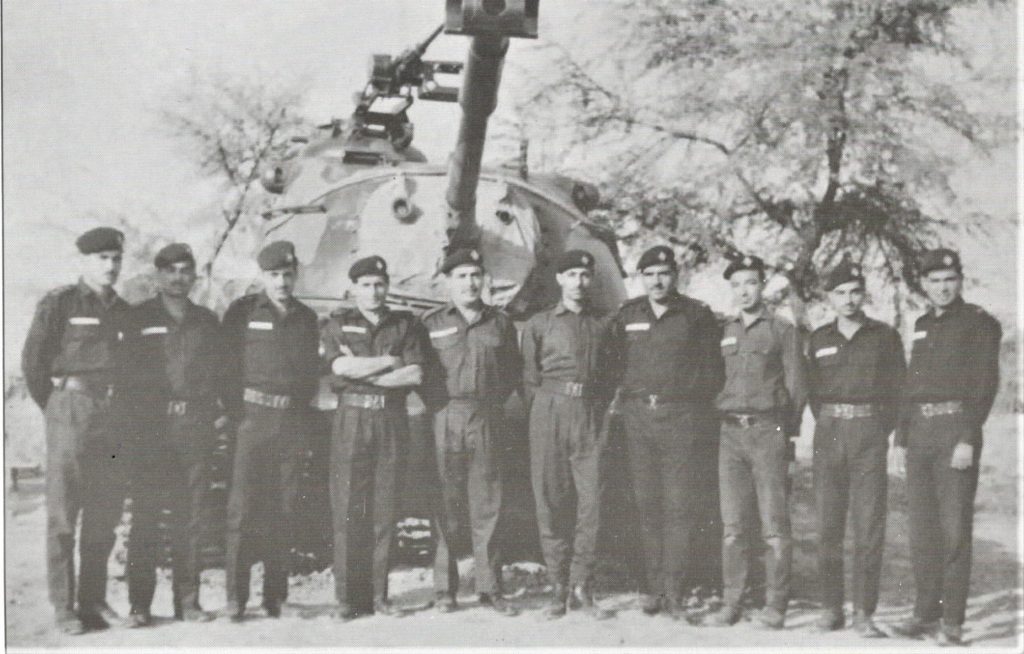
Gulsher named his son Malik Muzzafar Khan Gheba (1901-1989) after his close friend. On the recommendation of another Tiwana stalwart Malik Omar Hayat Khan, Muzzafar was appointed Jamadar of Remount, Veterinary & Farm Corps (RVF&C). In 1941, he was commissioned as an officer and retired in 1956 at the rank of Captain. He was recalled during 1965 war and promoted Major. Muzzafar’s three sons joined army and all were PIFFERS. Brigadier Muhammad Sarfaraz Khan was from 8 Frontier Force Regiment (8 FF), Colonel Muhammad Mumtaz Khan was from 5 FF and Jafar joined his grandfather’s regiment Guides Cavalry.
Jafar was educated at Lawrence College at Ghora Gali (Peak House 1949-57). College’s alumni are known as Gallians. He joined 21st Pakistan Military Academy (PMA) course and commissioned on 23 April 1960. He excelled at PMA and passed out on top of merit list winning coveted sword of honor.
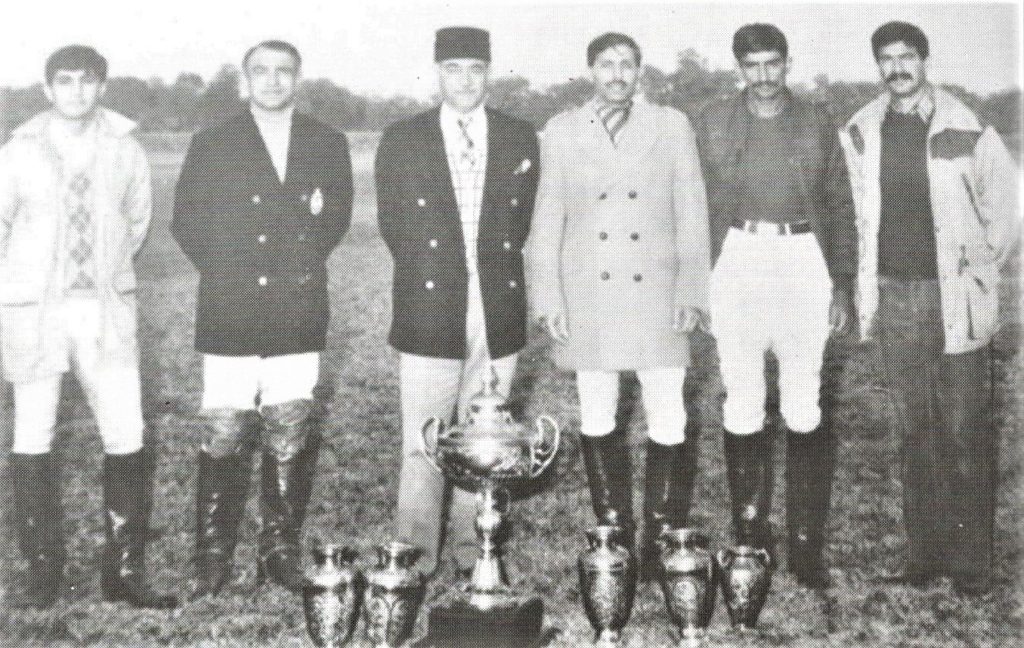
He joined his grandfather’s legendary Guides Cavalry. Later, he was appointed Adjutant of President’s Body Guards (PBG) in 1964 and he proceeded to command PBG in 1967-68. He reverted back to his regiment in 1968 and attended 1970 staff college course at Quetta. In 1971, he was appointed Brigade Major (BM) of Dacca based 57th Infantry Brigade commanded by Brigadier (later Lieutenant General) Muhammad Jahanzeb “Bobby” Arbab.
Jafar was with his brigade commander Bobby Arbab on 20 March 1971 when 2nd East Bengal Regiment refused to open fire on the crowd blocking the railway crossing at Joydevpur. They fired 62 rounds over the heads of the mob and managed to clear the obstacle without killing anybody. However Brigadier Arbab took their action of refusing to fire into the civilian crowd as “disobedience of lawful command” on their part, the CO 2 East Bengal was removed two/three days later. After the fall of East Pakistan, Jafar was Prisoner of War (POW) in India. Jafar’s brother Sarfaraz after command of 31st Punjab in Sylhet was commanding a Mujahid battalion in East Pakistan theatre and also became POW. To my knowledge, this is the only case of two real brothers who became POWs in 1971 Indo-Pakistan war.
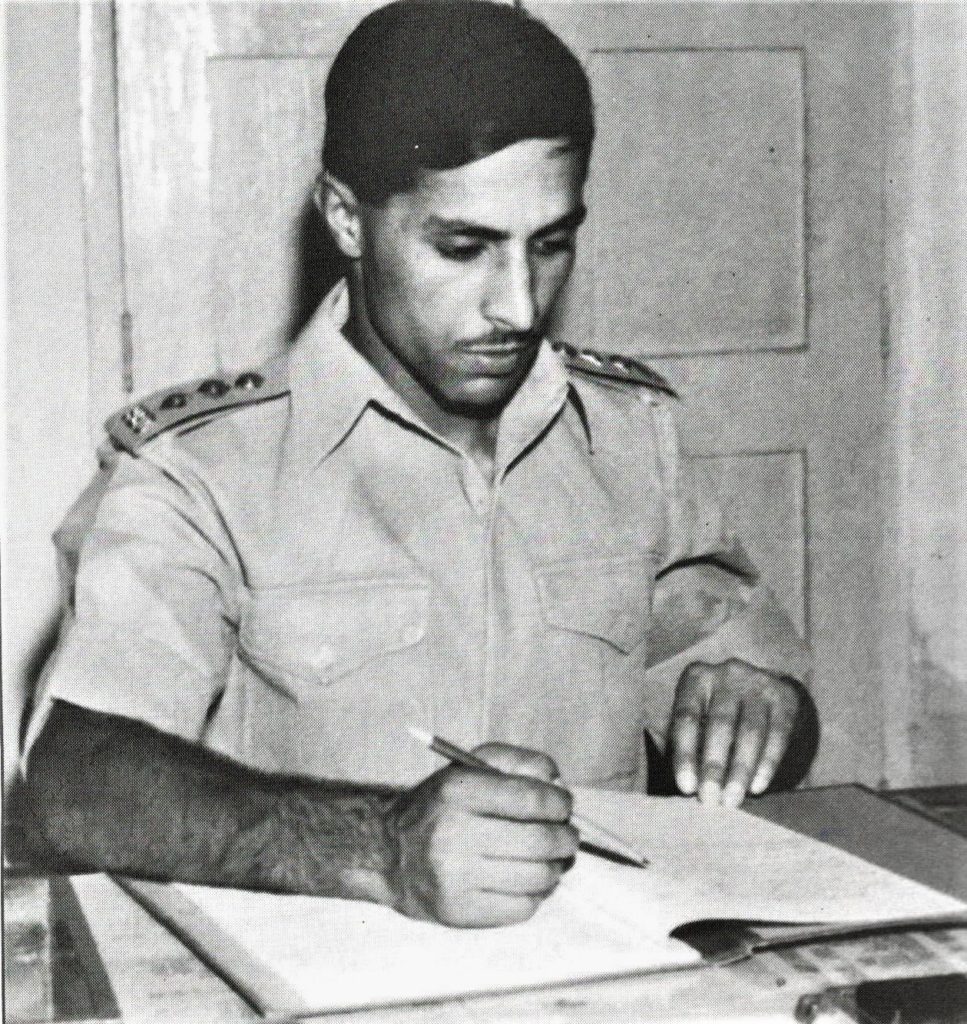
Jafar was repatriated in 1973 and he raised 52nd Cavalry in Kharian. He commanded his parent Guides Cavalry in Quetta. In 1977, he was appointed Directing Staff (DS) at Staff College Quetta. In 1979, he was promoted Brigadier and appointed Chief Instructor at Staff College. In 1980, he briefly commanded 2nd Independent Armored Brigade at Malir before proceeding to Royal College for Defence Studies (RCDS) course in London. On his return, he commanded 5th Armored Brigade based in Multan. After he was superseded, he served at Personnel and Administration (PA) directorate and then appointed instructor at National Defense College (NDC); now National Defense University (NDU). He retired on 17 August 1992 after thirty two years of distinguished career in the army.
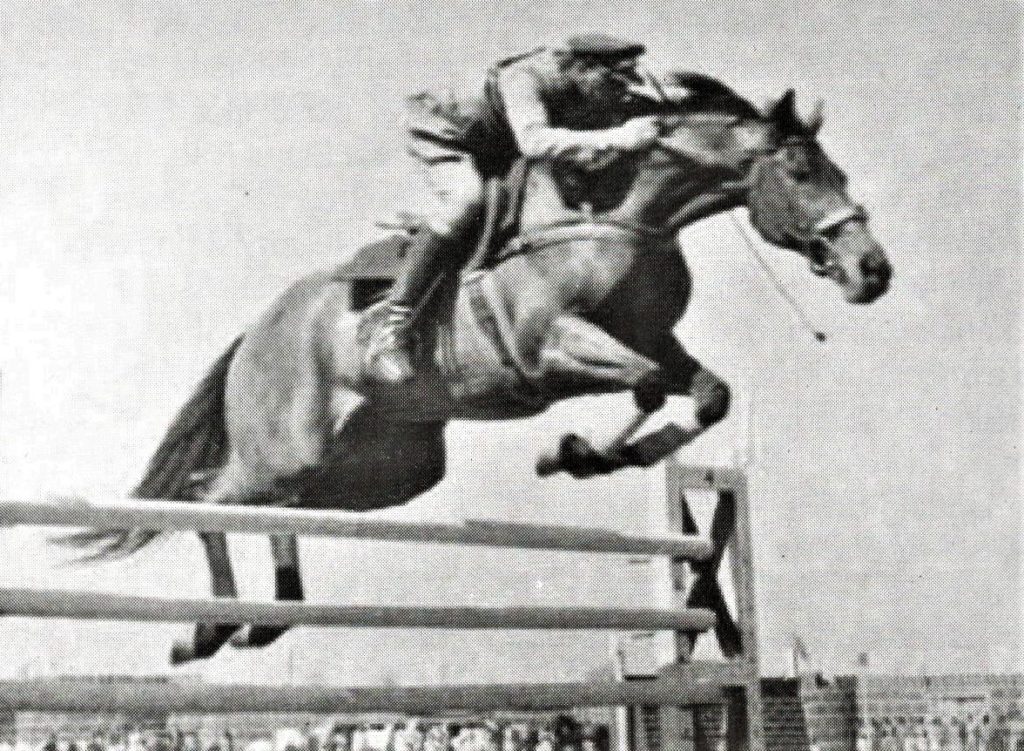
It is not the rank but personality of an officer that is remembered long after they fade away. Jafar performed very well at RCDS course and came back with the report that ‘an officer destined for highest ranks in Pakistan army’. This was not to be and there were several factors responsible for it. Old regiments have many godfathers and senior officers of the regiment have a major say in appointments and promotions. Command of an old regiment is a very difficult task. If Commanding Officer (CO) is too strict or refuse favors, he is labeled as a ‘difficult’ person and if he is lenient, he is accused by rival regiments for favoring regimental buddies and succumbing to the regimental ‘bhai bandi’ (regimental brotherhood).
Jafar’s command of Guides Cavalry was not an easy one. Officers who have family connection with the regiment are known as ‘claimants’. Jafar himself had a claim on the regiment but there were several ‘claimants’ serving under him. Lieutenant General Fazl-e-Haq ‘Fazli’ was a close friend and confidant of General Zia ul Haq. Jafar had served under Fazli in Guides as well as PBG. Both were very strong headed personalities and relationship was not always smooth. Sons of several former officers of Guides including Colonel ® Pir Abdullah Shah (ex 14th Scinde Horse, Colonel ® Muhammad Umar Khan, Colonel Abbas Durrani and Major General ® Jahanzeb Khan had followed their fathers to Guides. Jafar commanded the regiment without any favor or prejudice. He was also a strict disciplinarian and this may have resulted in some friction. When Jafar came back from London with an excellent report, General Zia ul Haq told some people that he would like to meet Jafar but a formal official invitation was not sent. Jafar was encouraged by his friends and family members to contact Chief’s office but he refused. He said that the invitation for the meeting has not come from General Head Quarters (GHQ) therefore he will not seek it. It was also communicated to him that he was being considered for the Military Secretary (MS) to the President position but he informed that he was not interested in the post. The final straw was his relationship with his GOC Major General (later Lieutenant General) Raja Saroop Khan when he was commanding 5th Armored Brigade in Multan. Saroop gave him a very weak Annual Confidential Report (ACR) and Corps Commander Lieutenant General (later General) Rahimuddin Khan concurred with it.
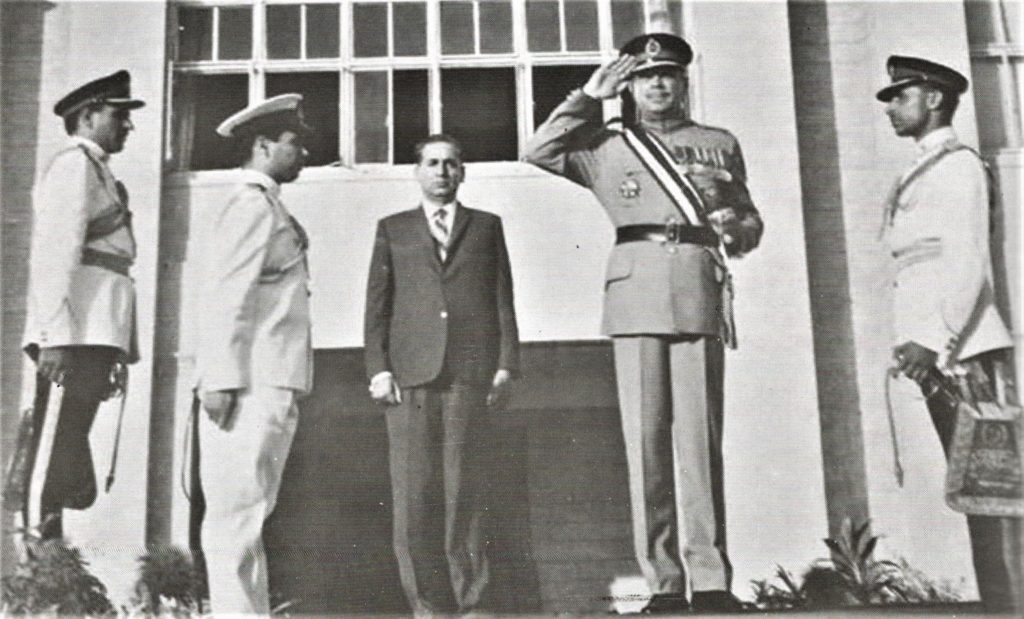
In 1968, Jafar married daughter of Major General Shahid Hamid (ex 3rd Cavalry & RIASC) resulting in linking of two military families. Jafar was a horse lover and inherited this love for horses from his grandfather. He was great polo player and after retirement retreated to his sanctuary; a farm house named ‘spurs’. He enjoyed his sunset years surrounded by his loved ones and soothing is soul with poetry, bird watching and above all the company of his horses.
Brigadier Jafar was a fine officer and a gentleman. He is remembered with fond memories by many who came in contact with him in professional and personal life. Major General Charles Vyvyan of British army who attended National Defence College (NDC) where Jafar was his instructor had these words for him, “We were in awe of him at NDC – of his unprecedented range of personal qualities and professional abilities, of his huge reserves of moral courage and physical stamina, of his intellectual curiosity, of his integrity, and of his humanity which few could match. There was a craze amongst the younger generation at the end of the last century, to wear bracelets with ‘WWJD’ engraved on them: ‘what would Jesus do’. To me, it always asked ‘what would Jafar do’ for me, Jafar was someone who’s wisdom, whose advice and guidance, and whose generosity was always a lone star!”
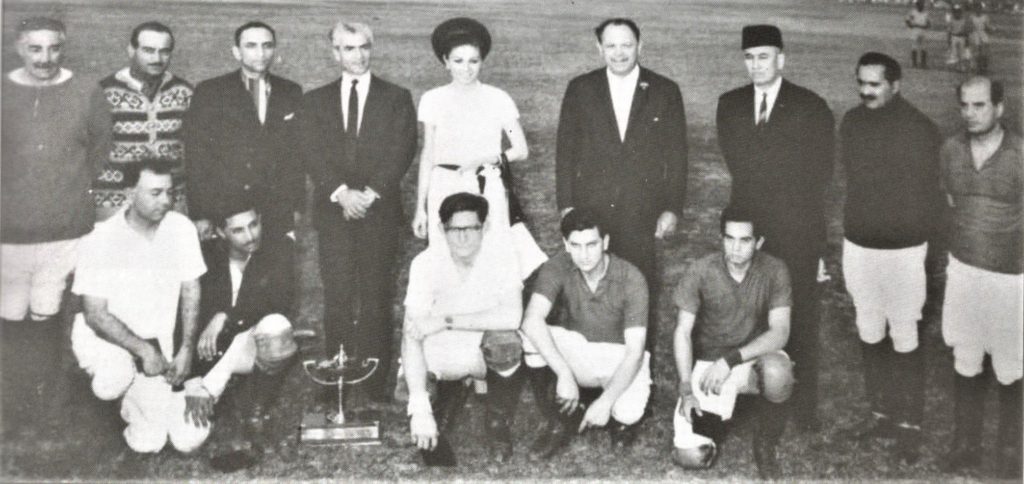
The author of the history of the Guides wrote about the shrine of Guides in Mardan ‘a little kingdom barely a mile square, but full of happy associations for all who have lived there. It is a quiet, unassuming spot, which year by year has bred, and sent forth to fight, many a gallant officer and brave soldier; and which in future years hopes to keep bright the shining record of great deeds that have gone before’. Jafar was a link in that chain. Jafar has now joined his fellow PIFFERS gone before him and I’m sure he is happy in the company of officers, VCOs/JCOs and Other Ranks (ORs) reminiscing about the deeds of valor done over one hundred and sixty years history of the regiment.
“Like the old Soldiers of the ballad, I now close my military career and just fade away: an old soldier who tried to do his duty as God gave him to light to see that duty. Goodbye”
General Douglas McArthur


